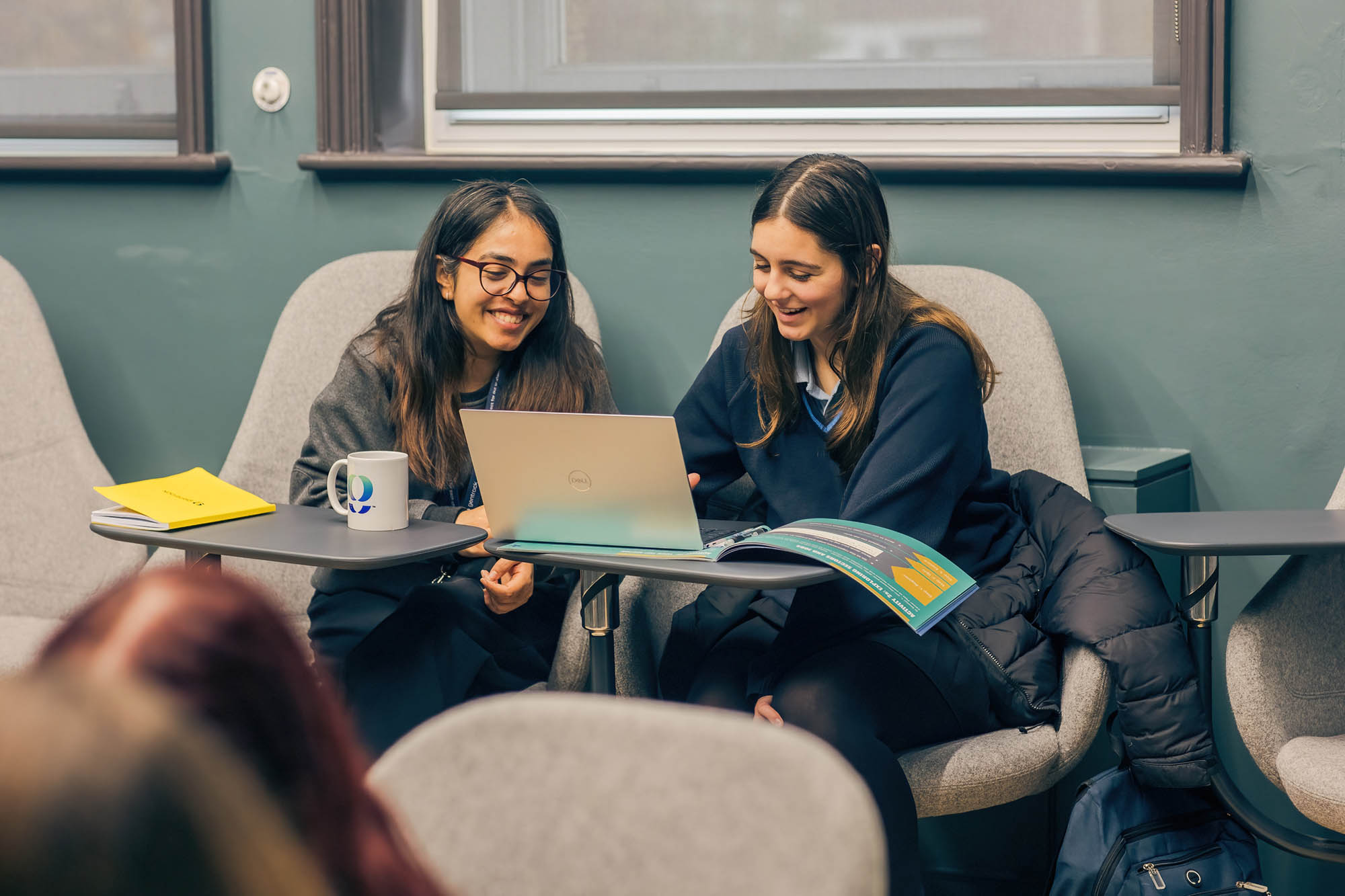
Words by Fiona Thompson
Photography © Paul Read
It’s lunchtime at the London offices of Gentrack, a utilities technology provider, and the company has an influx of visitors. The café is crowded with a group of 14 year old schoolchildren who are buzzing about their visit.
The students have travelled 12 miles to Mornington Crescent from Nower Hill High School in Harrow, a large mixed comprehensive with a diverse population. Over 50 languages are spoken in the school.
Lyall Sahadow, who is Head of Year at Nower Hill High School, says: “The students are here today to get some careers advice to help them choose their post-16 courses. And that’s crucial. But it’s also a real eye opener for them to see what the workplace looks like – especially somewhere like Gentrack which is culturally diverse.
“It may seem like a small detail, but they love being able to press a button on a machine to get a hot chocolate. On the way here, one student said to me, ‘The Gentrack offices are so fancy. It’s so nice. I hope I can get a job in a place like that one day.’”
The students’ visit is part of a programme organised by Future Frontiers, a charity that provides young people from low-income families with the guidance, networks and opportunities they need to realise their potential at school and achieve post-16 qualifications that build towards secure and fulfilling employment.
In the UK, family income is the strongest predictor of how well a young person will do at school and the future opportunities they will have. Future Frontiers exists to change this.
“We see young people who have experienced disadvantage falling behind at every single stage of the education and career journey,” says Maddy Gazzard, the charity’s Director of Fundraising.
Research shows that 75% of young people from disadvantaged backgrounds won’t achieve the grades they need in English and maths GCSEs to enter most London sixth forms. Two in five of them won’t have access to a careers advisor at school. They are also less likely to progress in further or higher education or to move into sustained employment or training that offers good earning potential.
The pandemic has only intensified the situation. It has been hugely disruptive for young people’s education, and has had a disproportionate effect on those from poorer backgrounds.
“Covid-19 created a narrative of young people falling behind, which was very anxiety-provoking for many schoolchildren,” adds Maddy. “The future became increasingly cloudy, with young people not able to imagine what the next few weeks would look like, let alone the future.
“Often, people in their early teens haven’t made the connection between school and their future. But if they don’t know what’s possible for them, they can easily miss out on opportunities that will seriously affect their life chances.
“We want to see young people achieving post-16 qualifications that will open the doors to higher education and ultimately help them secure fulfilling, well-paid employment.”
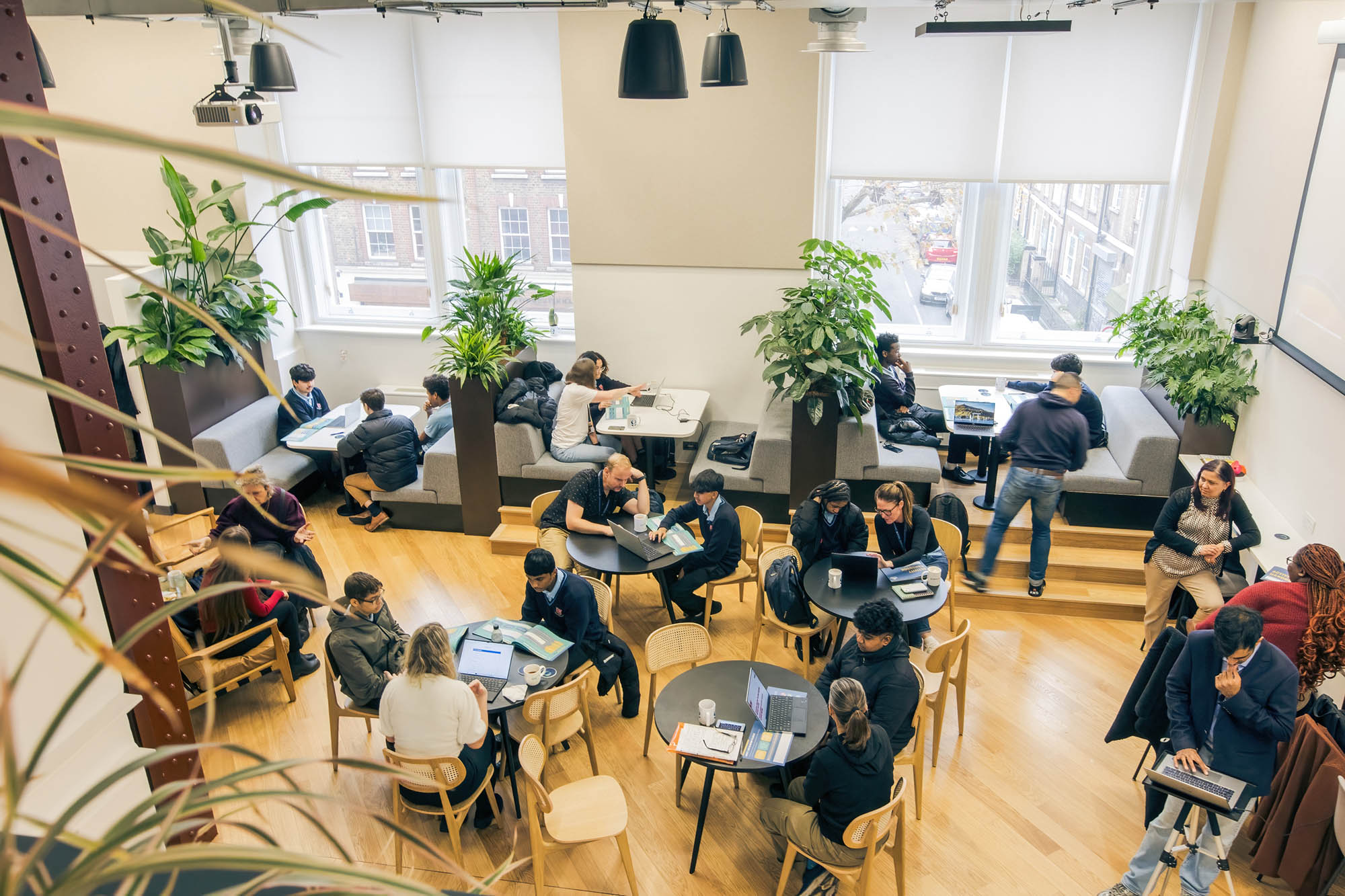
“Through Future Frontiers, students go into organisations, experience new surroundings and have conversations with mentors that help them to be brave and to achieve. They feel they have the right to be in that space and can go into any professional setting and thrive. The programme can change not just the dynamics of their life, but of whole generations.”
Future Frontiers fulfils its mission by providing pupils with intensive, personalised careers support over a two-year period, from Year 10 to Year 11. In Phase One, they complete six hours of personalised career coaching with a business professional. In Phase Two, they work with a trained Transition Manager who’s an expert in the post-16 educational landscape. Together, they build an action plan. In Phase Three, they receive support to help them follow their action plan and secure their place on post-16 courses that suit their aspirations and potential.
At age 14-15, complex choices are at play for young people who may not realise the impact of their decisions on their future. “Our programme breaks down a potential future into a series of manageable steps,” says Maddy.
Future Frontiers selects students according to various criteria, including young people who are eligible for Pupil Premium and those who are not predicted to gain the GCSE grades they need to get into the sixth form. “Many of the young people we work with are on free school meals,” adds Harvi Chera, Transition Manager at Future Frontiers. “Perhaps they have less home support than other pupils, they might be in care or be young carers themselves.”
“Young people from low socio-economic backgrounds experience huge barriers in education,” says Maddy. “There may be limitations around the activities they can get involved in, they might be living in poverty and they may feel stress and anxiety as a result.”
An additional challenge is the constant changes in the educational world. “Whilst families want to help, they may not fully understand the various possible journeys through further and higher education,” says Maddy. “Future Frontiers offers young people access to conversations about the future with people who are experts in those different routes.”
As well as working with young people, the charity offers outreach activities for parents/carers and runs sessions that demystify the educational journey, helping to empower families to support their child’s progress.
Founded in 2013, the charity has now partnered with more than 100 schools serving low-income communities in London and has enabled over 10,000 young people to participate in career coaching programmes.
Over the last decade, Future Frontiers has worked with 130 businesses. As well as Gentrack, these organisations include such well-known names as A&O Shearman (formerly Allen & Overy), Coutts, EDF Trading, Marex, Publicis Sapient, Smith + Nephew and Zoopla.
Future Frontiers trains volunteers from its partners in career coaching skills, matches the business to a school, then facilitates coaching sessions between students and volunteers in the organisation’s office.
The charity has worked with Prendergast Ladywell School, one of the Leathersellers’ Federation of Schools which is in an area of high deprivation in south-east London. “Children at our school may have the academic qualifications, but lack the confidence to reach for a particular career,” says Ikechukwu Okey, Assistant Headteacher.
“Through Future Frontiers, students go into organisations, experience new surroundings and have conversations with mentors that help them to be brave and to achieve. They feel they have the right to be in that space and can go into any professional setting and thrive. The programme can change not just the dynamics of their life, but of whole generations.”
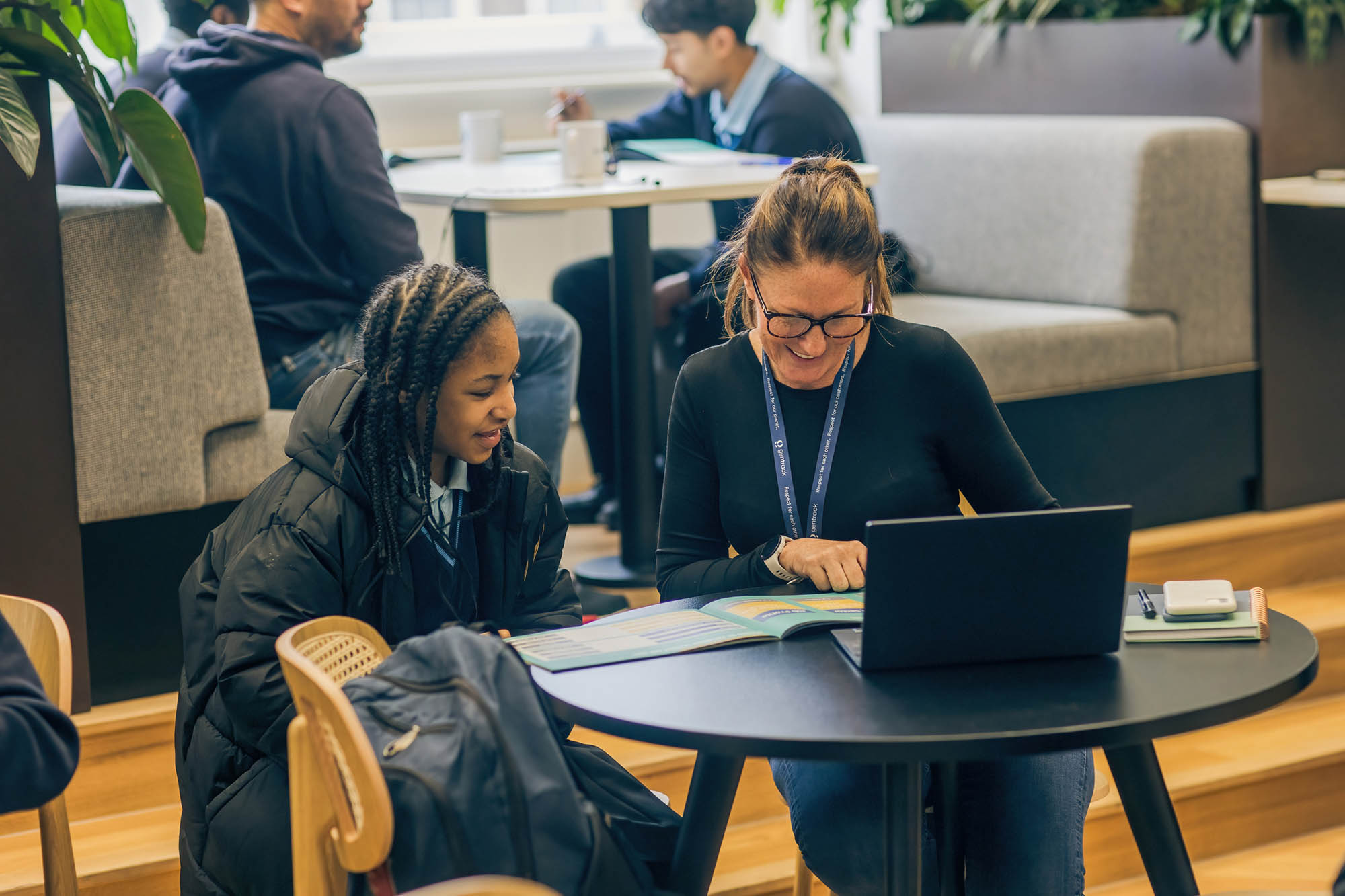
Back to today’s session at Gentrack’s offices in Mornington Crescent, where students are meeting up with their mentors for the second time. Altogether, they’ll have four 90-minute sessions with their mentors, which make up Phase One of the Future Frontiers programme.
During their first meeting, students completed an animal quiz based on the Myers-Briggs personality type indicator. This helped young people to identify which of 16 animal personalities they most closely resembled, from a philosophical owl to an engaging dolphin or a mysterious sea horse.
In the final meeting, students have a video call with someone in their chosen profession. This person is able to give them a realistic understanding of what the job entails and what they need to do to get there.
Today, students are working with their Gentrack mentors to fill out their own pupil handbook of careers activities. Together, they will investigate the student’s interests, skills and career values, explore possible sectors and jobs, and look at the different options for post-16 training and qualifications for those jobs.
“This session is about reflecting on what matters to young people, their strengths, what they do and don’t want to do, and imagining where they could go in the future,” says Maddy. “It looks at some of the pathways they might know and understand, including A Levels and university, as well as those that are less well-known such as T Levels, BTECs and apprenticeships.”
At one table, 14 year old Caitlin is sitting with her mentor from Gentrack, Judith. “From the beginning, Caitlin came in wanting to get a lot out of the programme,” says Harvi. “She’s very confident, artistic and charismatic.”
Caitlin says: “This programme has helped me get a better insight into what I enjoy doing. It’s made me realise I want to do something like photography or graphic design, where I can be creative, work independently and come up with ideas.
“Talking with Judith, I’ve learned the skillsets and grades I might need for these careers, which would probably be A Levels in English, Art & Design, and Photography. Now I know that, it will make me work harder to get my GCSEs.”
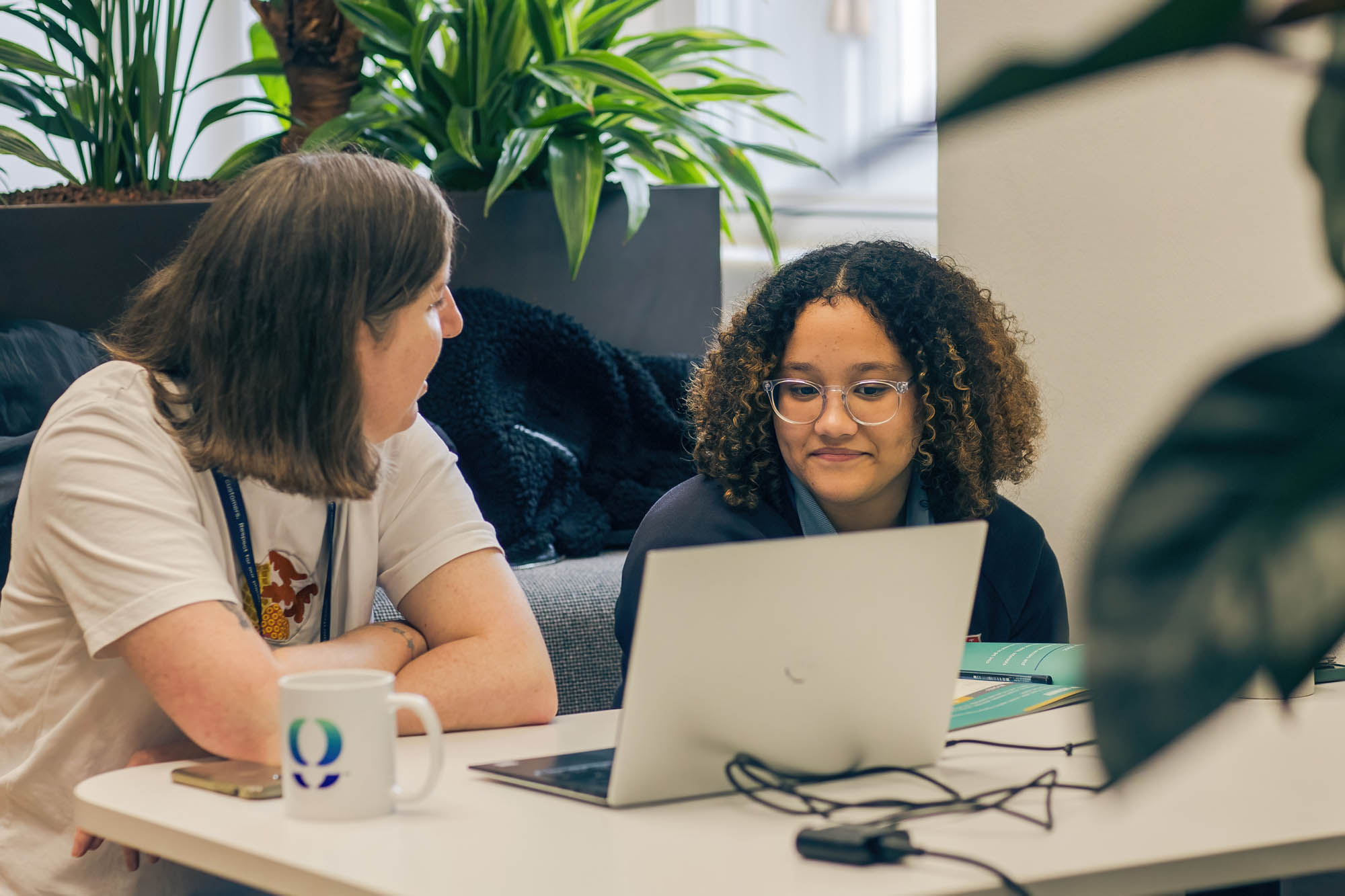
Judith adds: “This process has helped Caitlin to understand what’s out there that would suit her skills and values. It’s helped to crystallise the path towards her career goals and also outlined some options for a Plan B.”
At another table, 14 year old Jeffrey has been chatting with his Gentrack mentor. “Jeffrey has shown real leadership in this group,” comments Harvi. “He makes sure that everyone is settled down and that they’re all listening. He has so much potential.”
Jeffrey has always enjoyed playing online games, and taking part in the Future Frontiers programme has helped him discover how he might get into game design as a career.
“Talking with my mentor has really helped me open up my mind, think through what I want to do and feel more confident about the choices I make and how they will affect my future,” he says.
“I definitely feel more passionate about coding, computers and maths. I’m more up for focusing on the studies that will help me do better in my career.”
Daniella Badoo, a Teaching Assistant at Nower Hill High School, believes that conversations with mentors help open up new possibilities in students’ minds. “Without Future Frontiers, young people might get to Year 11 and feel they don’t have any choices,” she says.
“It’s particularly useful for students to hear from coaches who haven’t gone down the university route. The education system has such a narrow focus on university, and that’s not necessarily the best option for our young people.”
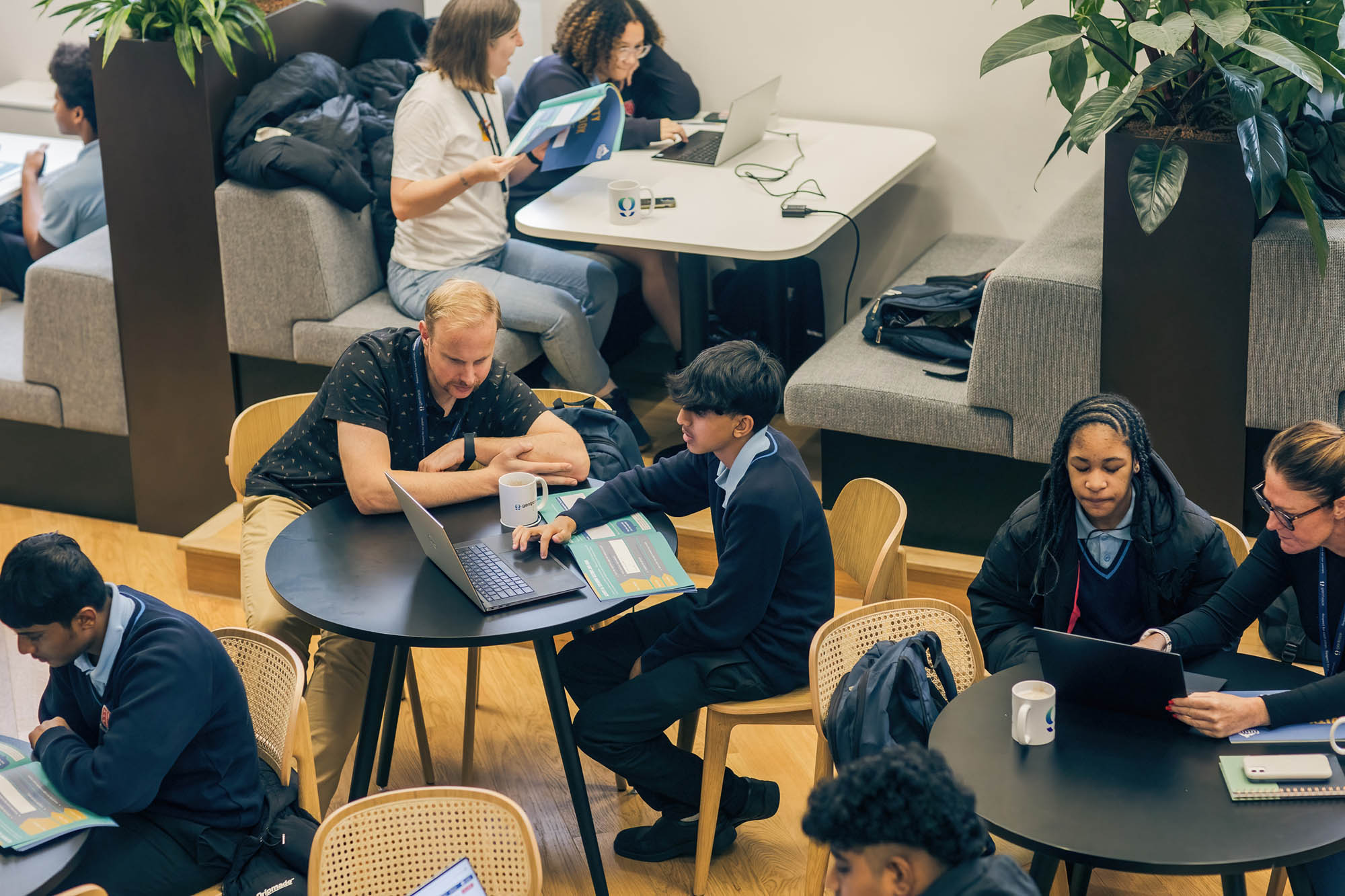
The relaxed yet grown-up nature of the student / coach relationship is another positive benefit. Lyall points out that: “Children often don’t have these kind of conversations about careers and aspirations with their parents at home because their parents are working too hard. Mentors talk to them as though they’re adults, which encourages young people to step up. It’s very unlike the controlled, hierarchical atmosphere they experience at school.”
Future Frontiers is committed to robust, long-term monitoring and evaluation. A recent external evaluation by ImpactEd found that Future Frontiers participants demonstrated statistically significant increases in their career readiness and self-belief.
In addition, an initial comparison study found that Future Frontiers participants were almost 30% more likely to enter a post-16 qualification that aligns with their potential and career aspirations, with 78% achieving this outcome.
“It’s really lovely to see students engage and grow in confidence,” says Harvi. “They’re imbued with so much self-belief. You really see them change over the course of the programme.
“The knowledge they gain from the programme will benefit them for life. They work more autonomously and act more independently. They aren’t nervous about talking to adults about their career choices so they have more confidence to network.”
According to Maddy, the programme also has some unexpected benefits for pupils.
“We see students have a light bulb moment when they realise that school isn’t just somewhere they’re obliged to go to every day. They start seeing it as a place that helps equip them for their future. They trust school and trust their teachers more and understand that people are there to help them.”
Another possibly surprising benefit is the effect on students’ mental health. “Young people on the programme often mention that they feel less worried about their future because they’ve identified their dream career and know the steps they need to take to get there,” says Maddy. “This means they’re less anxious and more able to focus on their studies.”
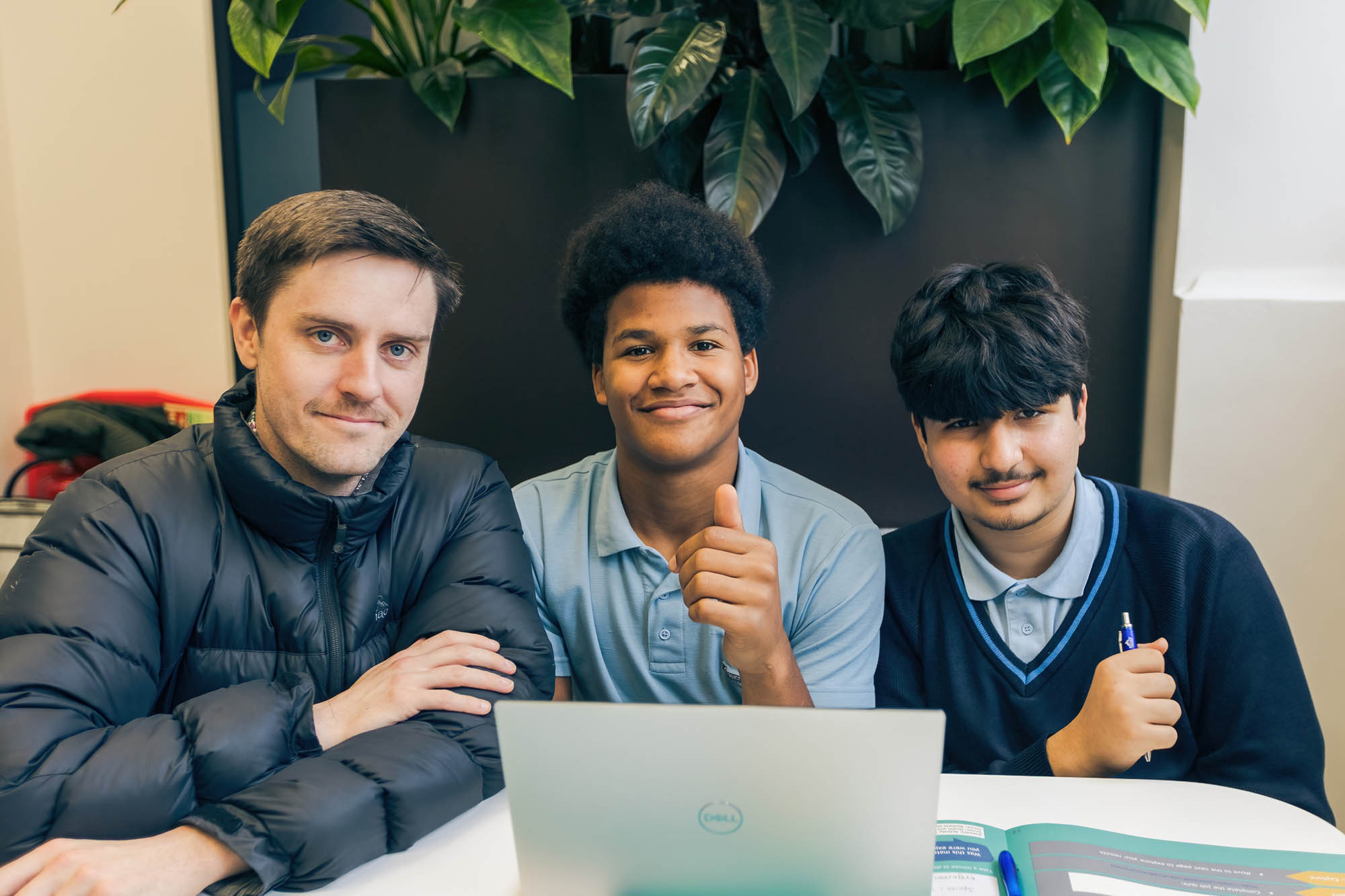
Coaches also derive a great deal of satisfaction from their involvement in Future Frontiers. “Coaches often get very emotional at the end of the course,” says Harvi. “They tell me it’s the best thing they’ve done in years and that it’s had a huge impact on their career.
“They love it when the young people come into their offices and they can share their careers skills. They find it so rewarding to see the young people grow and develop. From a different angle, it’s good for people who work from home. They have an extra reason to come into the office and have the chance to meet colleagues from across their organisation.”
Too many of our young people are missing out on the chance to shape their future careers. A programme like Future Frontiers has the potential to make a massive difference to their life chances. “We offer young people one-to-one support tailored to their interests, skills and values, so they’re committed to the programme,” says Harvi. “They leave with a healthier mindset, feeling they have so many options. It is a truly life-changing experience.”
–
Future Frontiers was mentioned in the 2022-2023 Leathersellers’ Review as part of a story about unrestricted grant funding to the Leathersellers’ Federation of Schools. Read more
Read Next
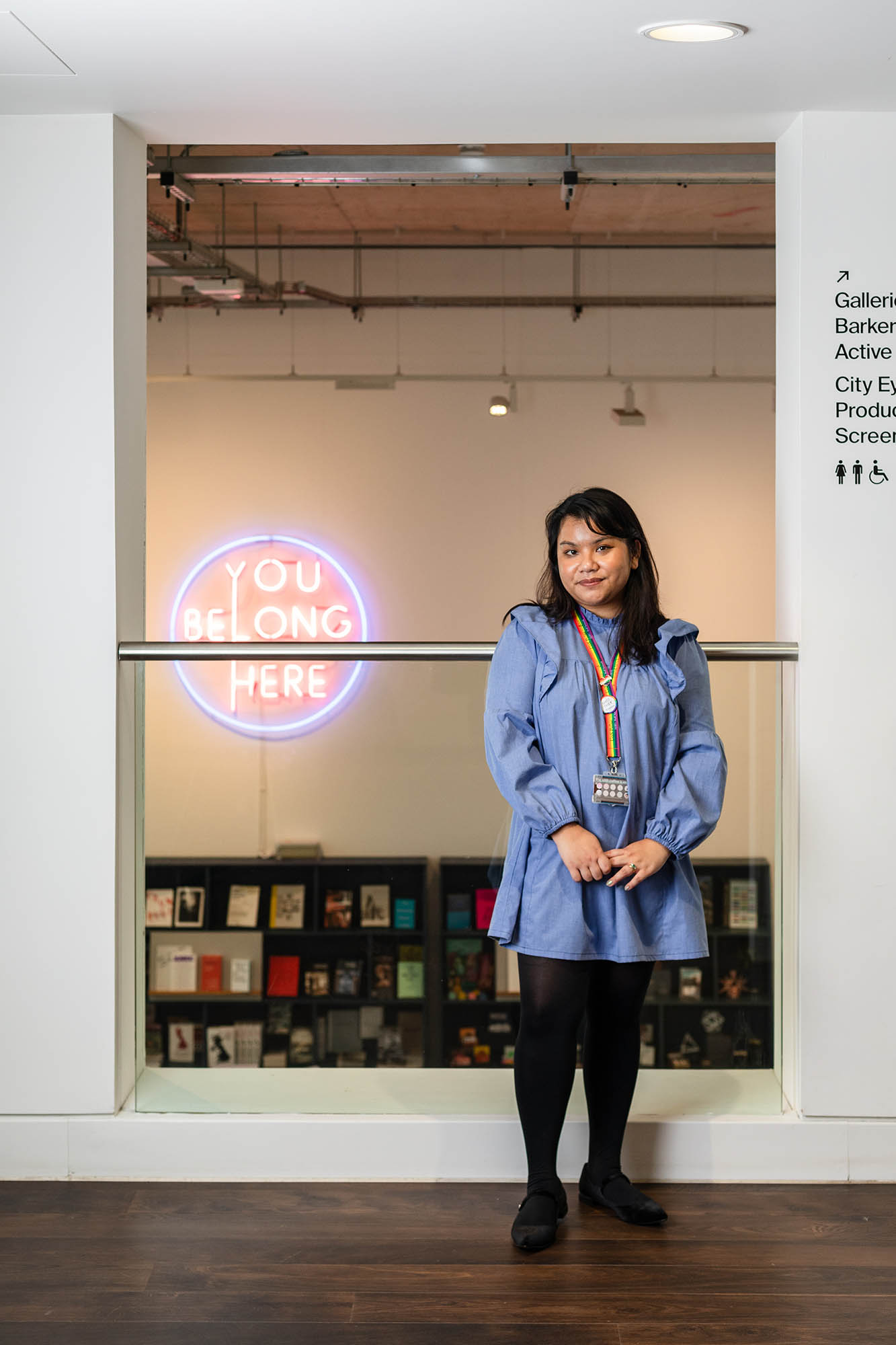
Breaking Through the Class Ceiling
What can a photographic exhibition at Southampton University teach us about social mobility? Students, staff and alumni share their experiences and contribute to a complex, intersectional picture of challenges.
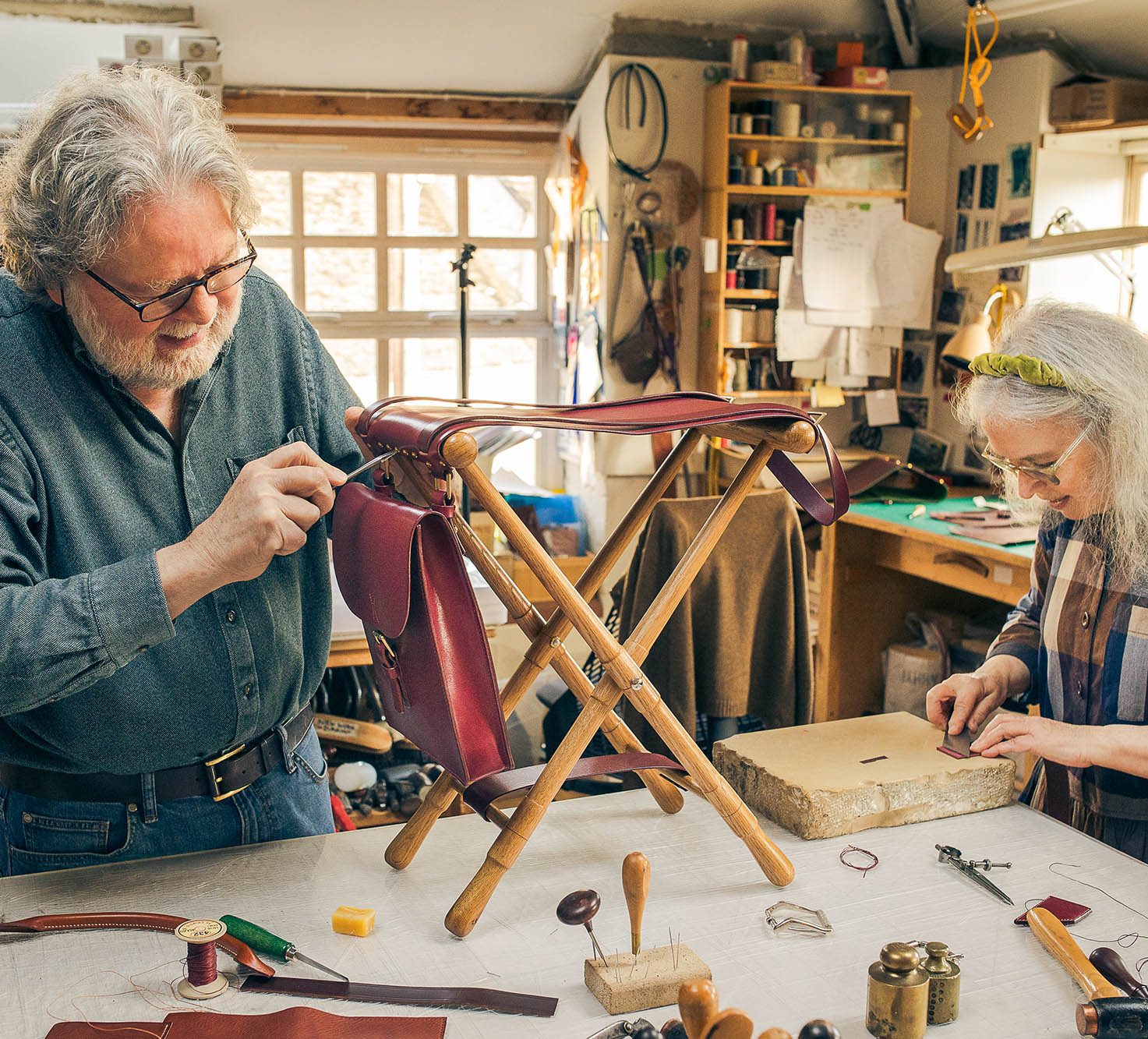
The Educators
Meet the leatherworkers helping to give the UK its competitive and creative edge by passing on traditional leather craft skills.
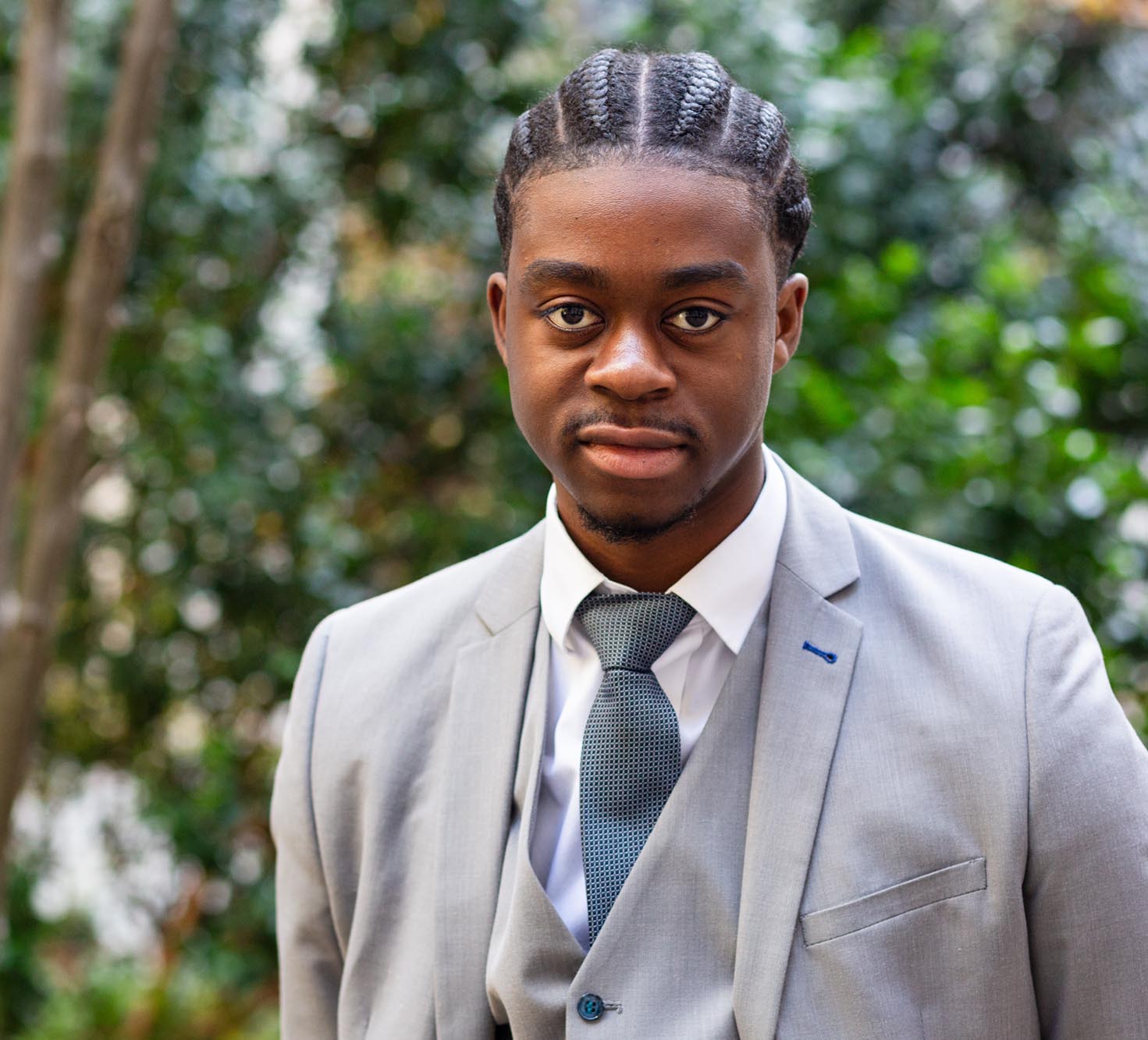
The role of mentors in social mobility
Discover how a supportive ecosystem of teachers and mentors helped one student to find a different route into higher education.